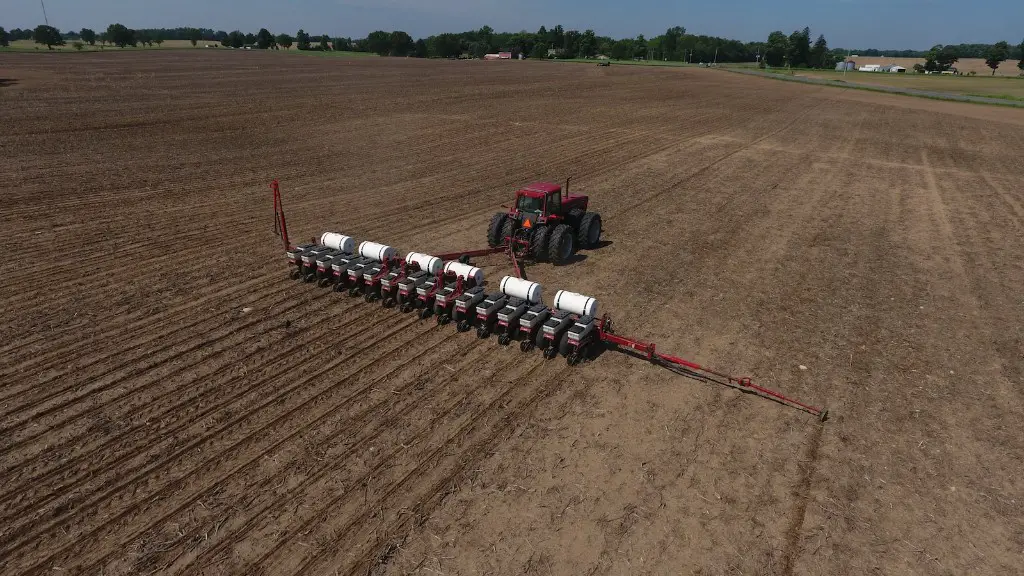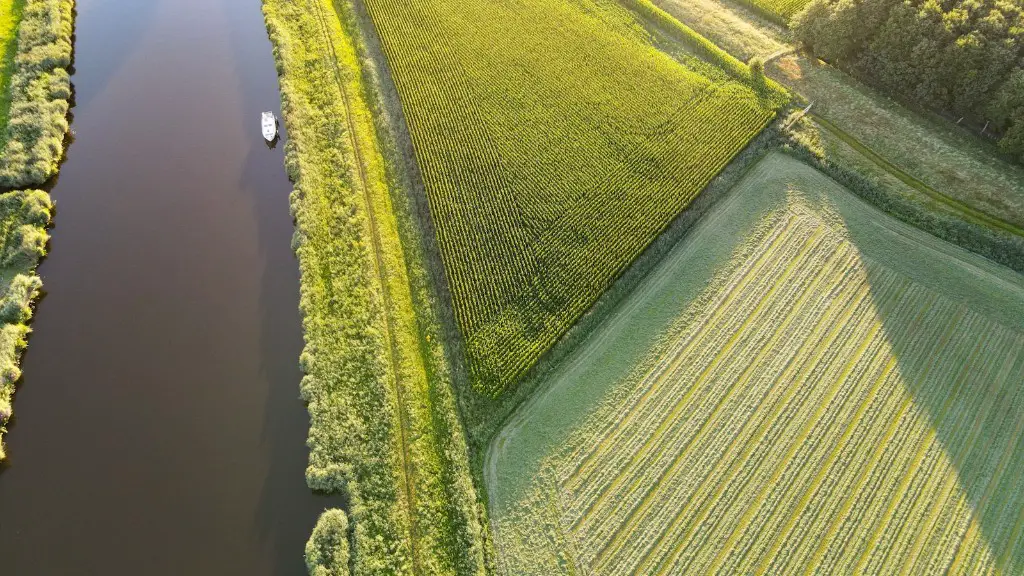Agriculture is member of the economic base in many rural areas, particularly in the Great Plains states. In addition to the economic contribution that agriculture makes to these states, agriculture provides environmental and social benefits that improve the quality of life for all citizens.
There are a few reasons why agriculture is important in rural areas. One reason is that it provides food for people who live in these areas. Agriculture is also a way for people to make a living, either by working on a farm themselves or by selling the food they grow. Finally, agriculture can help to keep rural areas looking nice and tidy.
Why are rural areas important?
Rural areas are vital for many reasons. They are a major source of water, food, energy, and recreation for all Americans. They also make up a large portion of the country’s land mass, which is important for many different reasons.
Agriculture is the world’s largest industry. It employs more than one billion people and generates over $13 trillion dollars worth of food annually. Pasture and cropland occupy around 50 percent of the Earth’s habitable land and provide habitat and food for a multitude of species. Agriculture plays a vital role in the global economy and the wellbeing of humanity.
Is agriculture in rural areas
It is essential for the government to invest in rural communities and industries to keep them economically stable. These industries are the backbone of many rural areas and provide jobs and income for residents. Without these industries, many rural areas would struggle to survive.
A rural farm is a great way to produce fresh, local food for your community. There are many benefits to farming in rural areas, including the ability to connect with the land and the community, and the opportunity to produce food in a more sustainable way.
Does agriculture promote rural development?
Agriculture plays an important role in rural development, especially due to land use. In countries where the sector is of less economic significance, agriculture can still be a vital part of the rural economy and can help to support and sustain rural communities.
The sustainable development of rural areas is essential to ensuring food security and nutrition, conserving water and other natural resources, and building healthy communities that can offer opportunities to youth. By investing in rural areas, we can help to ensure that they remain productive and vibrant places where people can live, work, and thrive.
What are 5 important of agriculture?
Agriculture is essential for most of the world’s food and fabrics. It provide us with many products like cotton, wool, and leather. It also helps with construction and paper products. Agricultural methods can vary depending on the region.
Farming is a great way to stay healthy and fit. It is challenging and stimulating work that can provide a good source of income, especially in rural areas. Farm work can also help develop younger generations by teaching them important life skills. And, finally, farming can help the environment thrive by providing healthy food and sustainable land management.
What is the positive impact of agriculture
While agriculture can have negative impacts on the environment, it can also have positive impacts. Agriculture can trap greenhouse gases within crops and soils, or mitigate flood risks through the adoption of certain farming practices. These positive impacts can help to offset the negative impacts of agriculture, and ultimately help to protect the environment.
Agriculture is the main occupation in rural India. With more than half of the country’s workforce dependent on agriculture, the land use for agriculture in rural India is very high. The livelihood of large sections of the society is dependent on the ownership of land and the availability of quality inputs. Given the importance of agriculture in rural India, it is critical that the government invest in improving the sector. This includes investing in land reform, improving agricultural infrastructure, and providing subsidies and support to farmers.
What is the importance of agricultural extension in rural development?
Agricultural extension programmes cover a broad area including improved crop varieties, better livestock control, improved water management, and the control of weeds, pests or plant diseases. They provide information to farmers and pass on to the farmers new ideas developed by agricultural research stations.
Rural Agricultural land It means an agricultural land in India – (a) If situated in any area which is comprised within the jurisdiction of a municipality and its population is less than 10,000, or (b) If situated outside the limits of municipality,then Situated at a distance measured-Aug 1, 2022
How could agricultural development help the rural poor
Agriculture plays a vital role in the development of rural areas and can help to alleviate poverty. The majority of rural poor depend on agricultural activity for their income and employment, so improving agricultural productivity can have a direct impact on poverty alleviation. In addition, development of the agricultural sector can create new jobs and businesses in rural areas, providing more opportunities for people to escape poverty. Therefore, the development of agriculture is a key part of rural poverty alleviation strategies.
There are a number of interventions that could improve the mobility of rural dwellers, including improving the quality of rural roads and providing access to intermediate means of transport (IMT). Additionally, interventions that bring the facilities, goods and services closer to rural dwellers, such as schools, health centers, markets and improved water supplies, would also improve their mobility.
What benefits are there to living in rural communities?
There are several reasons why living in the countryside has its advantages, one of which is that there is simply more land available. This helps to keep housing costs low, as there is no need to compete with others for space. There is also more of an opportunity to have your own land surrounding your home, which can be used for various purposes.
Agricultural growth is beneficial for the very poorest people because it increases the demand for their labor. With more employers looking for workers, the unemployed have a better chance of finding a job. In addition, agricultural growth may lead to higher wages, which would give workers more money to spend on necessities. Overall, agricultural growth benefits the poorest people by providing them with more opportunities to earn an income.
Final Words
Agriculture is the main economic activity in rural areas and is an important source of livelihood for many people. It is also a major contributor to food security and rural development. Agriculture plays a vital role in rural areas in terms of employment, income generation and food security. In many rural areas, agriculture is the only source of livelihood and is therefore essential for the survival of the community. Agriculture also provides an important source of income for rural households and is a major contributor to rural development.
Agriculture continues to be the main source of income and sustenance for people in rural areas. It is important for rural areas to have a strong agricultural sector in order to maintain a stable economy and provide food security for the population. In addition, agriculture provides employment opportunities for rural residents and contributes to the development of rural infrastructure and services.




